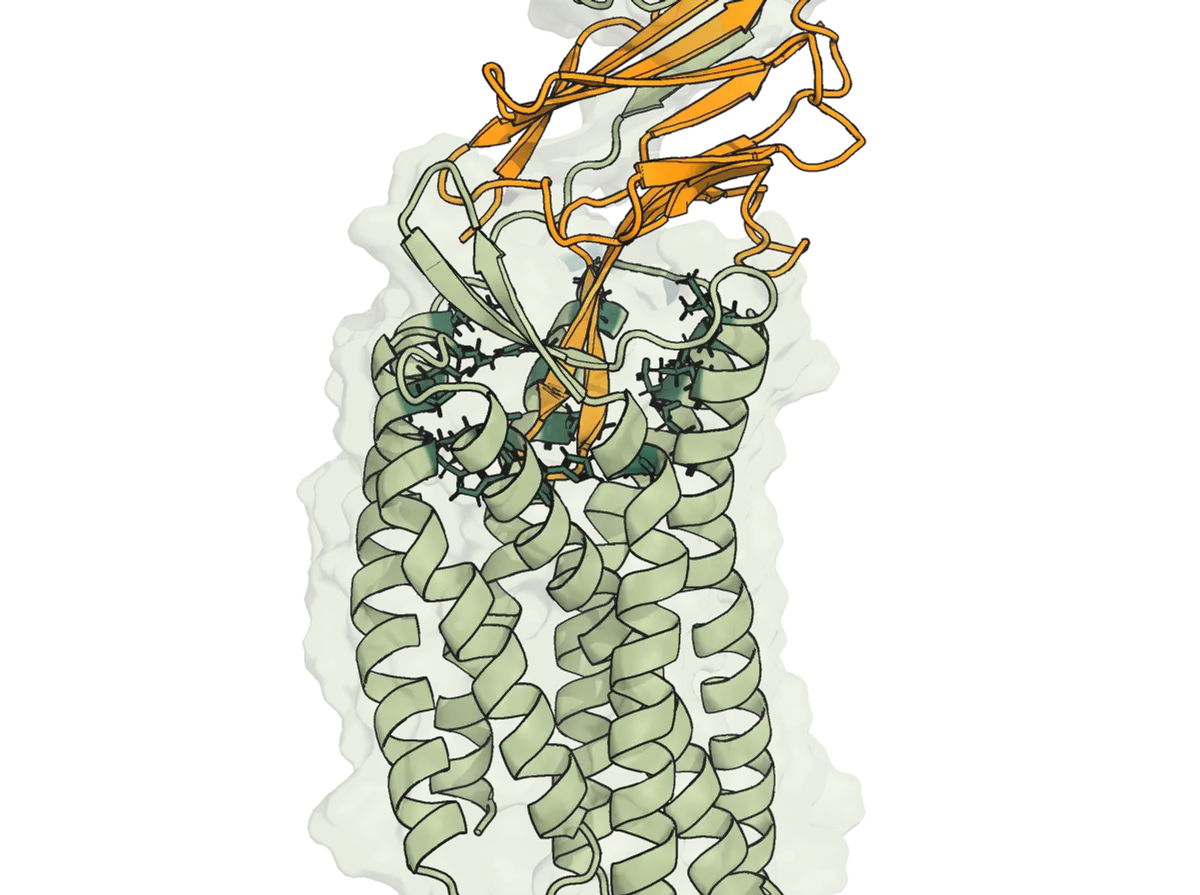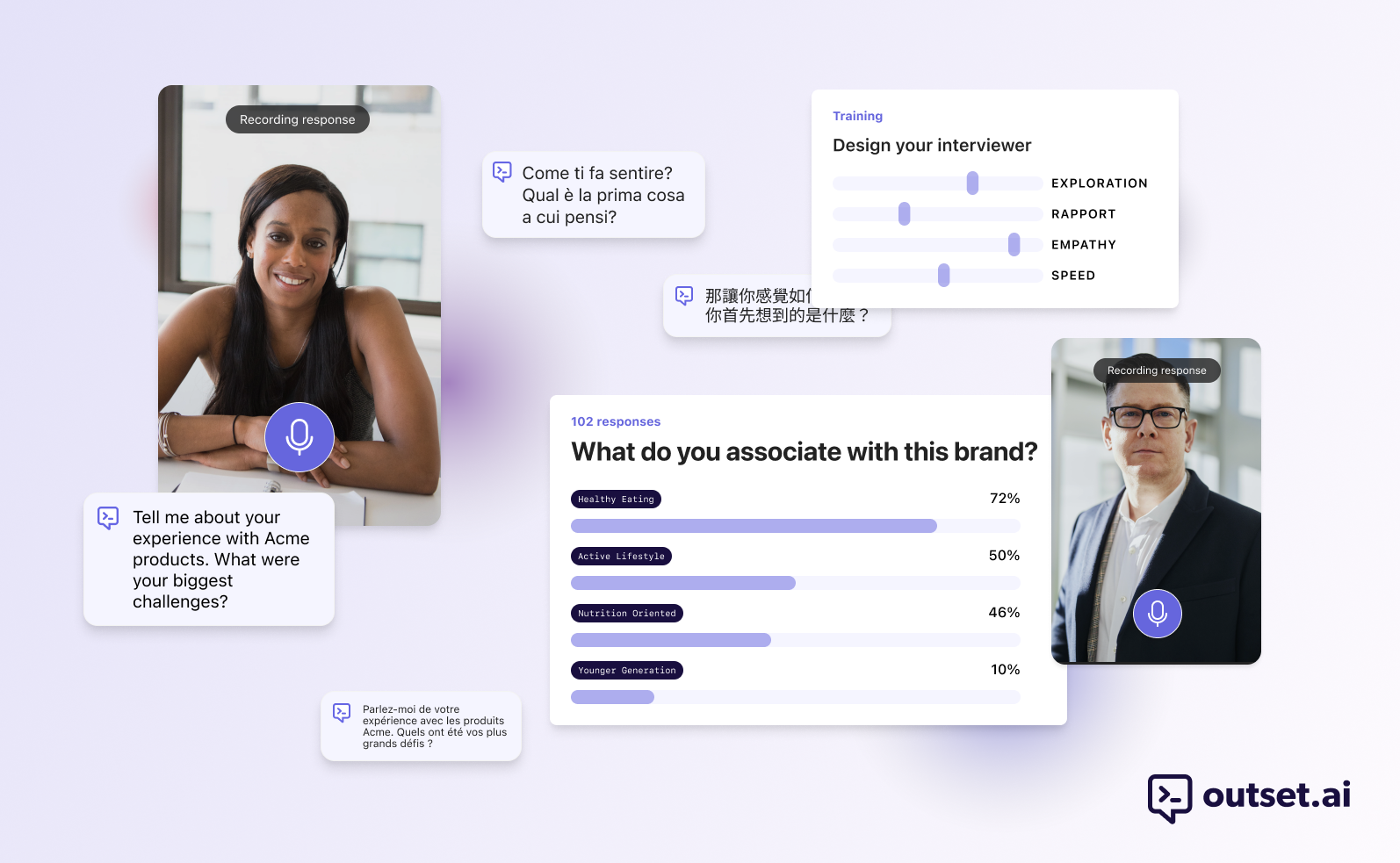This year’s Nobel Prize in chemistry recognizes AI’s transformational power to predict the complex structures of proteins. Despite these advances, there remain several challenges in bringing these advances to antibody protein design – a critical component in future therapeutics that may one day fight diseases such as cancer. While designing viable antibody therapeutics using AI remains an unsolved scientific problem, Radical Ventures portfolio company Nabla Bio announced a major breakthrough this week which brings us closer to true de novo antibody design. The implications for the future of drug discovery and human health are profound. Surge Biswas is Nabla Bio’s Co-founder and CEO.
Recent advances in deep learning have revolutionized our ability to predict the structures of proteins and design proteins de novo. While these tools hold enormous promise for medicine, there has been relatively little progress in using them to develop viable drugs. Antibodies, as the most established drug format, are a great first real-world test for de novo drug design. However, so far no AI systems have shown they are able to produce high quality lead antibodies from scratch in a way that is robust and generalizes across protein targets and antibody formats.
I’m incredibly excited to share new results from Nabla Bio where we show we can design antibodies de novo for use in therapeutic discovery. Nabla Bio created JAM, an AI system to design de novo antibodies with good affinities, early stage developability, and function. We’re seeing success across a range of soluble and hard-to-drug membrane proteins. We’ve extensively tested these designs in our wet lab and included detailed data and controls, providing the first clear demonstration of how de novo design could expand the scope and efficiency of therapeutic antibody discovery. Our technical report is the first demonstration of de novo antibody design relevant to therapeutic discovery and the first evidence of computationally designed antibodies that can target hard-to-drug membrane proteins including GPCRs – the topmost effective therapeutic targets for a variety of solid cancer tumors.
Multipass membrane proteins, like GPCRs, are notoriously challenging. Our approach enables the design of antibodies that can not only drug these targets directly but also serve as precise tools for target validation and the exploration of new biology.
De novo antibody design – generating antibodies computationally from target sequence or structure alone, without using information of known binders of the target – offers the promise of precisely engineering binding interfaces with atomic precision. We believe this capability unlocks targets that are intractable today, but also leads to dramatic increases in the efficiency of therapeutic antibody development.
Please see Nabla’s full blog post and coverage of this announcement for more details.
AI News This Week
-
What if LLMs could continue learning? (The Information)
The AI industry is pivoting toward more efficient, adaptable systems that can be personalized for enterprise use, with major players like Microsoft hinting at “near-infinite” memory models in 2025. Radical Ventures portfolio company Writer has developed a novel approach enabling large language models (LLMs) to continue learning after initial training. The technology introduces “memory pools” within each transformer layer that store and update new information from interactions. Early testing shows promising results, with one model improving its math benchmark accuracy from 25% to 75% over multiple tests.
-
Middle powers can find their niche in the AI revolution, says former Google CEO (The Economist)
Former Google CEO Eric Schmidt outlines how “middle power” countries can thrive in the AI era despite not having frontier models as national AI champions. Schmidt suggests three key strategies. First, countries should find their niche in the AI value chain, like Britain’s focus on AI governance through its well-funded AI Safety Institute. Second, nations should leverage their unique local context and comparative advantages, like Singapore positioning itself as a “digital Switzerland” by hosting diverse cloud infrastructure providers. Third, countries can attract talent through strategic immigration, like UAE’s successful “golden visas” program for coders which quadrupled its AI workforce. Schmidt emphasizes AI’s transformative potential, which Goldman Sachs estimates will add $7 trillion to global GDP over the next ten years.
-
Orbital Materials applies AI to accelerate cleantech materials discovery (C&EN)
The American Chemical Society has named Radical Ventures portfolio company Orbital Materials among their 10 Start-Ups to Watch in 2024 list. Founded in 2022 by DeepMind alumnus Jonathan Godwin along with James Gin-Pollock and Daniel Miodovnik, the company has developed an AI model that predicts new material properties using public data, simulations, and lab experiments. The company is focusing on cleantech applications like carbon capture sorbents and catalysts for bio-based chemical production. Orbital aims to accelerate the typically lengthy commercialization timeline for new materials by combining AI predictions with human expertise.
-
Three strategies emerge for responsible data insights using generative AI (World Economic Forum)
As organizations face a surge in data volumes – projected to reach 175 zettabytes by 2025 – new approaches to AI implementation are becoming crucial for extracting meaningful insights. The World Economic Forum outlines three key strategies for responsible AI deployment: enhancing total information awareness through AI-powered knowledge fabrics that can process multiple languages and file types, creating curated content collections of reliable and attributable information, and implementing a control matrix for AI usage based on content reliability and technology control levels. The framework emphasizes the importance of extractive AI and retrieval-augmented generation (RAG) tools for maintaining data accuracy and attribution.
-
Research: Image-text data curation at the billion-sample scale (DatologyAI)
Researchers from Radical Ventures portfolio company DatologyAI have developed a novel data curation pipeline that enhances multimodal learning AI model training with significant improvements. Testing showed better models with up to 11 percentage points improvement on retrieval tasks and close to 3 percentage points on classification tasks compared to baselines. The pipeline enables faster training, reducing compute requirements by close to 98% for retrieval tasks and 92% for classification tasks. For efficient inference, smaller ViT-S/32 models trained on the curated data outperformed larger models while reducing query costs by around 3 times. The pipeline demonstrates how sophisticated data curation can dramatically improve AI model efficiency and performance.
Radical Reads is edited by Ebin Tomy (Analyst, Radical Ventures)





